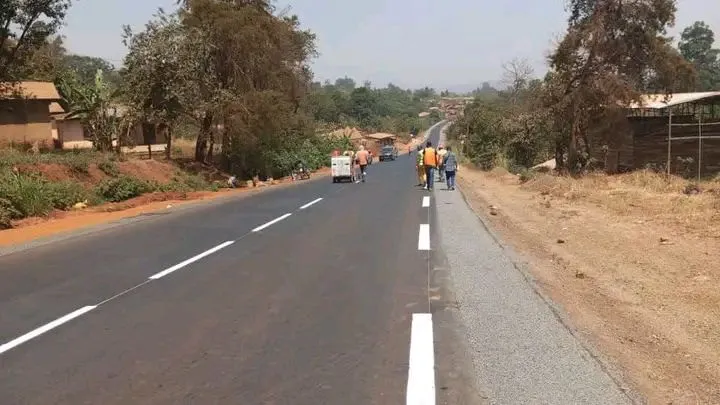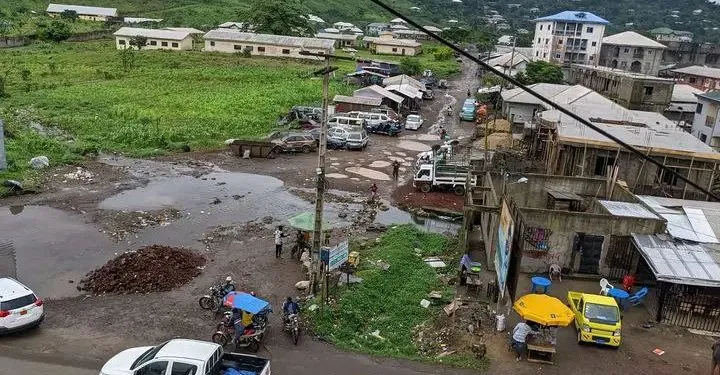Cameroon’s Ministry of Public Works has said urban development is the responsibility of another ministry.
The Ministry declared this in response to concerned Cameroonians who felt that recent road construction was being focused on other parts of the country.
Via the ministry’s Facebook page, a citizen by the name of Danny Strong wrote, “Minister, please come and fix the South West region too… The roads here are very bad. This is a town in Limbe with a very bad road, and people are suffering. Don’t only show the Yaoundé-Douala roads.”
His comment was accompanied by a picture that depicted a dilapidated road littered with potholes in Limbe, Southwest Region.
And in response, the Ministry said, “Danny Strong, urban planning is the responsibility of other institutions.”
This has left many wondering which ministry is in charge of roads in the country.

Roads in Cameroon are classified as follows: national roads (7041 km), provincial roads (5616km), departmental roads (8075km), and rural roads (12843km).
The Ministry of Public Works might be right about the responsibilities of roads in towns belonging to another institution. Its duties state that its work is the technical control and management of the construction of public infrastructure and buildings, as well as the maintenance and protection of the national road heritage.
Meanwhile, the Ministry of Housing and Urban Development is responsible for developing and implementing the government’s policy on habitat and urban development.
Where confusion sets in
Most of the roads that the Ministry of Public Works is constructing or rehabilitating have passed through other towns. In some cases, they are bad, but municipal authorities cannot fix them because it is not their responsibility.
Recently, the Prime Minister ordered the Ministry of Housing and Urban Development to fill potholes in the City of Yaounde.
This has not only shown how power is concentrated in the central government but also how citizens suffer because of a few things that could have been left to the local authorities.
In Buea, for instance, each time it rains, the frontage of the GCE Board and Molyko Police Station is always messy. The gutter is blocked, causing flooding around the area, which sometimes prevents the movement of vehicles and pedestrians.
The governor of the Southwest Region is said to have ordered the mayor of Buea to rectify the problem, but the mayor is equally believed to have refused because the road in question was not within the responsibility of the council.
A few years ago, the former Mayor of Buea, the late Ekema Patrick, installed a speed break around Njieforbi in Molyko to stop speeding cars, but Governor Okalia Bilai dismantled it, saying the said road was out of the council’s functions.
Recently, the Minister disbursed over FCFA 500 million to councils in the Southwest region to rehabilitate some roads, some of which are urban and rural. So the question remains as to which roads are the responsibility of which ministry in Cameroon.



